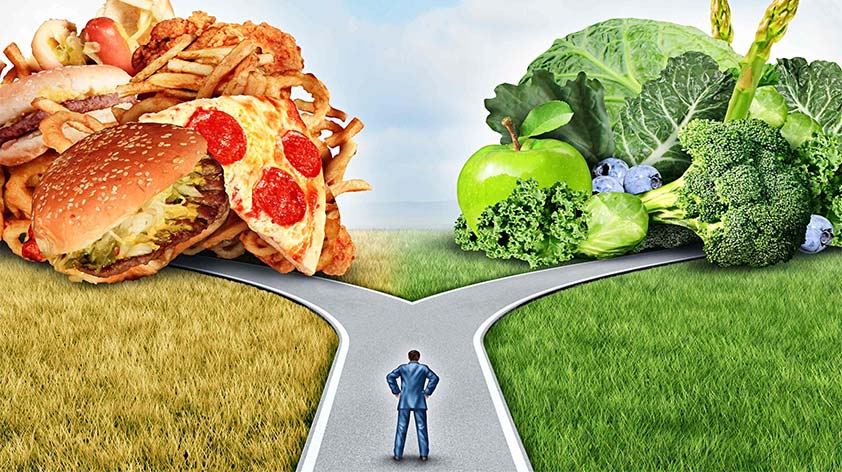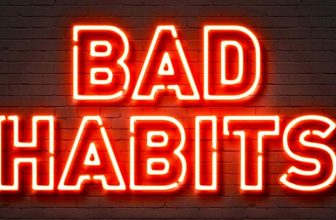
When we engage in pleasurable activities such as eating, drinking, or listening to music our brain releases dopamine. However when we do these things too frequently, or engage in such activities too much, our brain makes it more difficult to regulate this system. Want to know how to get a handle on this dilemma? Then read on for Nourish Your Body: Tips to Minimize Junk Food in Your Diet!
Ultimately this leads to one desiring more of the pleasure, thus fostering a cycle of addiction. Countering this argument in the context of food is a document entitled ‘Sugar addiction: the state of Science’ by Fletcher, Westwater and Ziauddeen which can be found in the European Journal of Nutrition.
The authors proclaim that sugar addiction is a fallacy and instead place their emphasis on food deprivation. This theory suggests that junk food in moderation can be controlled and manage weight or obesity. In relation to one being overweight, this may be true, but this line of argument if not expanded, gives the impression that the only concern regarding eating junk food should be gaining excessive weight.
Problems with Processed Sugar & Artificial Sweeteners
One has to also look at the amount of sugar that is added to foods and the greater consumption of processed foods over time. Furthermore, the sugar of yesteryear tended to be sucrose and not typically processed such as corn syrup, or high proportions of fructose.
Even artificial sweeteners that are routinely contained in your favourite diet soda often have aspartame as a listed ingredient, which is said to be at least 200 times sweeter than sucrose. Though there is no concrete research to indicate the long-term effects of aspartame, the short-term effects of dizziness, headaches and clouded memory have been noted.
The fact that artificial sweeteners such as aspartame are 200 times sweeter than your regular processed sugar, sucrose, should raise warranted concern, particularly as sucrose is linked to type 2 diabetes, fatty liver disease and insulin complications. Consequently I would advise eradicating, or considerably minimizing your consumption of artificial sweeteners particularly aspartame.
Eating Whole Food in Place of Junk Food
Have you ever wondered why when you eat a highly processed meal you often feel hungry again in such a short period of time? Eating wholefoods can make one feel fuller and satisfy your appetite for much longer periods of time. In comparison, eating highly processed foods do the opposite.
Wholefoods such as brown bread, whole wheat pasta and brown rice, not only keep you fuller for longer; they also contain vital vitamins and minerals such as B6, cobalamin, magnesium and iron. Complex carbohydrates help release energy slower which helps maintain a steady flow of energy.
Simple carbohydrates found in processed foods release energy into your body much faster. Since you will want to eat more, even if it’s not real hunger, (but to fuel your energy) it becomes apparent how one can put on weight without adding corresponding nutritional substance to their body, at the same time. That’s a double-whammy downer!
Junk Food Impairs Brain Function
A recent study suggests that even brief exposure to junk food can reversibly impair the hippocampus (learning and memory) function of the brain. In the study ‘A high-fat high-sugar diet predicts poorer hippocampus-related memory and a reduced ability to suppress wanting under satiety’ by Stevenson’s, Boakes, Yeomans et al.
They illustrate that the consumption of a high sugar, high fat diet in only a week, hinders the normal function of the brain. The study also proclaims that such a diet impairs spatial information and memory concerning one-off events and also what I mentioned earlier, the inability to regulate appetite, thus increasing not only food consumption, but more of the same undesirable foods.
Foods that Enhance Brain Function
Opting for foods that enhance brain function is recommended instead. Foods high in Omega 3 are perfect for this; think oily fish such as sardines or kippers or vegan options such as walnuts, hemp seeds, hemp oil and flaxseed. Additionally blueberries are very beneficial for optimal brain function and choline which aids cell structure; fat transportation, regulation of metabolism, reducing high cholesterol build up in the liver and maintaining a healthy nervous system.
Choline which is commonly grouped in the Vitamin B complex category, is neither a vitamin nor mineral. Good sources include eggs, chicken liver, salmon, cauliflower and broccoli.
Getting Change in Motion: Your Reasons to Start
When you begin to eat foods that nourish the body and decrease foods that do the reverse, your taste buds start to adjust and over time, you no longer crave the junk foods you previously did. A holistic mind, body and soul will enhance your journey; this includes sufficient exercise, adequate sleep and also minimizing stressful and toxic people in your life and environment.









